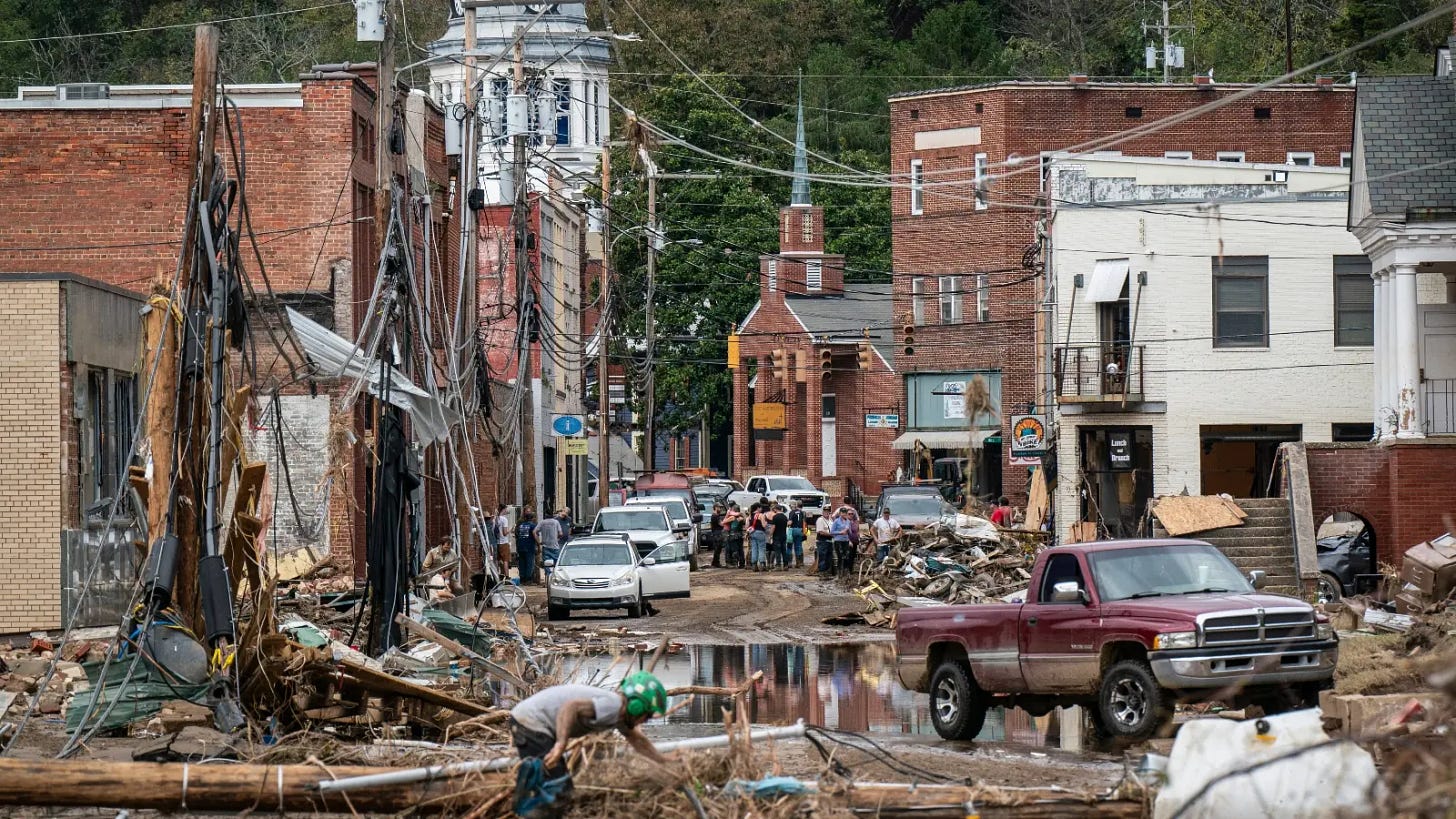Have We Reached Peak Consumerism?
Ahead of another Prime Day, some thoughts on why we keep buying more stuff
Good morning on this glorious 8th morning of October also known as yet another Amazon Prime Day in this year of 2024. Yes, another one, this time titled, Prime Big Deal Days. Unclear if this is supposed to make it seem better or different than the last one in July? They are the same thing. At the risk of repeating myself, which feels necessary in this moment, Amazon Prime Day is a SCAM. Prices are inflated, then slashed to make it seem like you’re getting a deal. Jeff Bezos didn’t buy a $500 million yacht with a full time staff of 36 people and operating costs of $25 million a year by giving away deals (let us not forget the $75 million support yacht too).
July’s Amazon Prime Day saw record profits, with $14 billion in sales. It should be noted that $1 billion of those sales came from shoppers using “buy now pay later."
Meanwhile Amazon is also entering the ultra fast fashion arena to compete with the likes of Temu and Shein who reportedly ship more than one million packages per day in the U.S. Amazon is well-positioned to do this, with a massive customer base and existing relationships with factories in China. And that’s not good news for anyone, especially factory workers. Ultra fast fashion is notorious for worker abuse and dismal pay, not to mention the environmental hazards. And Amazon is notorious for it’s poor treatment and exploitation of workers (just search “Amazon worker exploitation”).
While searches have exploded for “underconsumption core” as it trends on TikTok, the numbers tell a different story. Americans monthly spending on clothing and footwear has increased 72% since before the pandemic. We are buying more stuff, and creating more trash along the way. People in the US throw out more than 34 billion pounds of used textiles a year.
It can be hard to visualize numbers like this, and that’s part of the problem. As Amanda Mull writes for The Atlantic:
Goods are produced far away, and when we tire of them, the trash they create is also swiftly moved out of our field of vision. Rarely do Americans—and especially the well-off Americans who drive this sort of consumption—experience the downsides of plastics production or discarded cheap goods…Eventually, this separation will be more difficult to uphold. As the physical effects of climate change become more difficult to outrun even for the relatively affluent.
The conversation I’ve had with several friends as of late, have we reached peak consumerism? The data shows we keep buying more, the question is, why?
Credit card debt is ballooning, and more borrowers are falling behind on payments. But buying stuff is easier than ever. The convenience and accessibility of online shopping have made purchasing things as simple as the click of a button. The proliferation of the influencer industry (worth an estimated $20 billion) has created an entire new way of marketing goods, which makes it hard to discern what is a genuine recommendation and what is (more likely) a paid advertisement. Social media has normalized shopping hauls, overconsumption, and the constant adaptation of new trends from Stanley Cups to plastic shoes.
But it feels like there’s something else happening too. We’re living in tumultuous and uncertain times. Shopping can be a form of escapism. When we need distraction from the pain, stress, loneliness or fraught nature of everyday life, shopping can give us one of the fastest forms of relief. It gives us that quick hit of dopamine when we add to cart, buy something ”on sale,” or that new item arrives at our doorstep. The cult of products or brands sell “belonging.” But those feelings typically don’t last long, and so, we keep buying.
As Rufina of Totally Recommend writes:
The story that spending equals empowerment works well for those who profit from you buying more. Women are prime targets for this kind of “empowerment” narrative. But real empowerment isn’t just about spending—it’s about gaining the opportunities and control needed to build lasting financial security.
This year I decided to move away from the consumption driven world I inhabited for the last 10 years. To be clear, I’m not aiming to place the blame on us as individuals. We aren’t responsible for the climate crisis unfolding in front of us, or the abuse of workers at the hands of greedy billionaires, or the chemicals leaching into every aspect of our lives in the name of cheap goods. But on a personal level, it feels powerful to step back and decide to opt-out anyway.
The Prime Days, Black Fridays, Cyber Mondays, Big Deal Days, and Way Days aren’t actually saving us money. Shopping a “sale” is still spending, unless these companies are giving shit away, and I haven’t seen that happen yet. But it’s not just money we lose.
The constant push of consumption (both subtle and overt) is not just a distraction or escape from the challenges, loneliness or boredom of everyday life. It also keeps us from experiencing the moments that actually bring us meaning and purpose.
The overflowing inbox with reminders of sales or the expiring 20% off code. The “low stock” items to snag before they’re gone. The endless scroll on social media showing all the things we “need.” The time spent staring at a screen, or returning something that doesn’t work out. It’s all those stolen moments that eventually add up.
Maybe it sounds cliché to say spend time with people you love, enjoy nature, meet up with a friend, listen to music, volunteer, take up a hobby, but these are the things that will bring us joy, fulfillment, a sense of place, community and meaning. What if the things we seek to gain from buying stuff are actually free, and have been there all along?
Thank you so much for reading. I’ve kept this newsletter paywall free, but if you are able, please consider supporting with a paid subscription.
Another way to support my work is by “liking” this essay and sharing it with your friends.







It is chilling to see the devastation that climate change is bringing and the deniers of what is so obvious. I also have had enough, I don’t need any more STUFF. I took the #buynothingnew challenge this month and am in awe that you have done this for almost a whole year. I am starting small with the hope to keep going. I would rather have experiences than more material things. Love this essay so much!
Thank you for sending this out and always causing me to pause and reflect. Keep on writing, you have such a gift!